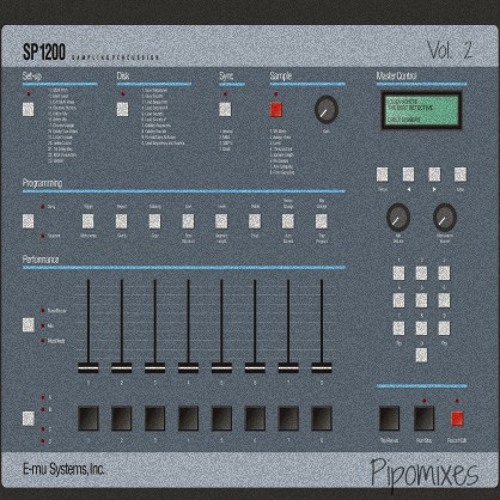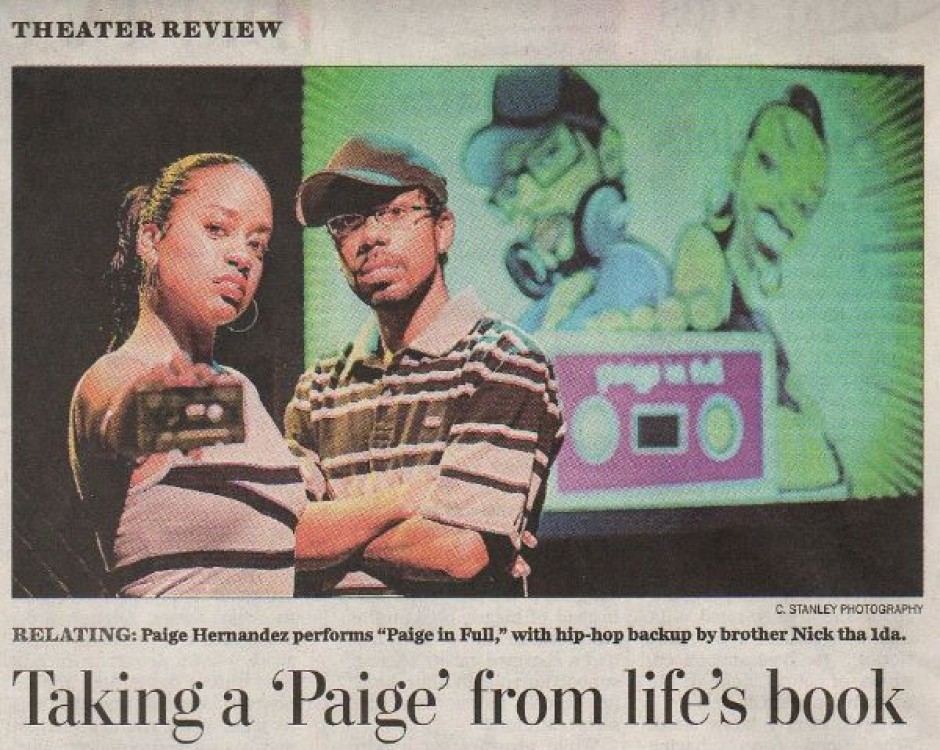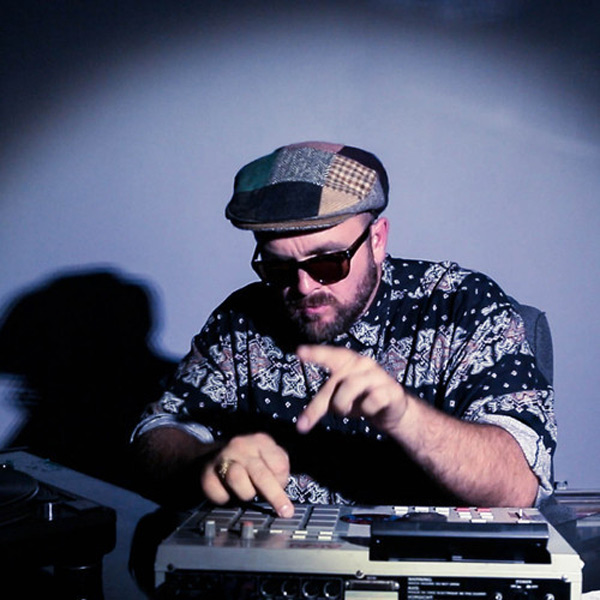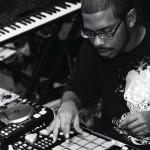During Pt. 1 of our interview, Nick Tha 1da talked about Roland SP live performance, micro-chopping samples, and the need to limit quantization while making beats. For Pt. 2 of 303s and 404s, Nick talks about the special bond shared by DMV producers, not pitching up records for sampling, and his love of records with "that grimy" sound.
DJ Sorce-1: I
like when producers have the attitude that it’s OK to learn the new equipment,
but it’s also OK to keep your go-to method that you are most comfortable
with. Sticking with what you know can
help you maintain your signature sound.
Nick Tha 1da:
The beautiful thing about programs these days is that they have the
capability to produce sounds that you wouldn’t normally find on a record. But, as you said, analog all day. There’s something about physically touching
the pads and making music.
DJ Sorce-1: I
think there is definitely something about the actual touching of pads and
pressing buttons that makes people feel something. I showed a friend of mine one of your videos
and he said, “That guy is playing the 303 like it’s an instrument.” I told him, “It is an instrument.”
Nick Tha 1da:
That was my intention all along.
At the time when I was getting interested in making beats you had Qbert
and Roc Raida taking turntablism through the roof. Before, you just had DJs rocking
parties. I wondered why nobody was
taking that approach with samplers and beat machines. Now you got AraabMuzik and Exile doing killer
live performances on the MPC. It’s
actually here now and it has arrived.
DJ Sorce-1:
It seems like the live beat thing has really blown up. You have guys in LA like Dibia$e, Samiyam,
and Ras G killing live shows and making a name for themselves. It’s crazy, because I religiously listen to
rap music and have always been into DJ culture and production, and I really
didn’t know about a lot of this stuff until a year or two ago.
Nick Tha 1da:
Oh man, the rap world goes hella deep.
That’s what I love about being a crate digger. Just when you think you’ve scratched the
surface there is so much more in the culture that you can experiment with and
learn about.
DJ Sorce-1: You
recently started rocking the 404 as well as the 303. I’m curious what your opinion is of the
different effects and features of the 303 and 404. Sometimes a feature that people love will be
removed from an upgraded SP.
Nick Tha 1da:
Well, going from the 303 to the 404, Roland did make improvements, and
that’s what it’s all about. For
instance, I really like the pitch adjuster of the 404 over the 303. The 303’s is absolute hot garbage. It makes it sound like you’re playing samples
in a metal trash can. With the 404, if
you mess with the knobs and adjust the drive and the resonance correctly; it’s
the same exact sample, just in a different pitch. It doesn’t change any of the time stretching
or any of that. I love that effect on the
404.
I never looked
at the machines from a DJ point of view; I looked at them from more of a
producer point of view. I was always
more concerned with sequencing beats and how to clean up my chops so they cut
off at the correct time. After I
construct the beat, then I worry about the effects and all of that. The effects are awesome for doing live
shows. That’s really relevant when
you’re looking at the LA beat scene.
That’s one thing we don’t have over here. People in the clubs in DC, New York, and
Philly, they don’t want to start around for 30 minutes hearing a set of me just
playing beats. They need some type of
singers or open mic. That’s all cool,
but like I said, I really respect the LA beat scene for what they are doing
with bringing the producer to the forefront.
I have a couple of beat homies who are originally
from the East Coast, same as my side, and now they’re over there in L.A. doing
their thing. My homie MNDSGN is
definitely a favorite of mine on the producer tip. Mind Design uses a few different things, he
has a good ear, and he can play a lot of stuff out. Ohbliv uses the 404 and he does his thing with it.
DJ Sorce-1:
You seem to be friendly with a lot of the
DMV producers. How did you get involved
in that scene?
Nick Tha 1da:
I feel like Kev Brown, Roddy Rod, and Street Orchestra really influenced
me to keep moving on my journey as a producer.
I remember when I was getting into it seriously and there was a Beat Society
producer showcase. Beat Society was
brand new; I mean it hadn’t been out a year.
At the time I was only 20 and the event was 21 and up, so I couldn’t
even get in. I was like, “Damn yo, this
is what my life is about right now. I
totally want to check this out but I can’t get in.” I saw Roddy Rod and he said, “That beat CD
you sent me was good. You had some
joints on there.” I told him, “Yo, I
appreciate it, but I really want to see the show.” Sure enough, Roddy Rod gets me in.
The show that night was Raheem Devaughn, Kev Brown,
Street Orchestra, and another producer who I can’t remember right now. They had SP-1200s, the MPC-2000, and everything
else sitting on the stage. People were going
nuts. They were doing their beats live
and Kev probably rocked Albany. At that
moment I was like, “Personal goal. I
gotta get on stage and play my junk.” It
was pretty much after that time that I got to know people. I’m a pretty open, talkative guy. We were already here and we were already
bubblin’ on the open mic and beat scene.
It just blossomed into watching each other evolve into the producers we
are today.
Nick Tha 1da:
It’s no secret now that sometimes you can get more satisfaction if
you’re part of a movement. Look at
Wu-Tang and even 9th Wonder and his SOUL Council. If you get a lot of like minded individuals
together, it gives you more of a push in the direction that you want to
go.
DJ Sorce-1: Earlier
in the interview we discussed sampling off of vinyl. I saw in the Behind the Beats interview that
you don’t pitch your records down when you are sampling them. Is that still the case?
Nick Tha 1da:
I’d say 75% of the time they are the exact same speed that was played on
the turntable. That’s for the simple
fact that at one point, I wanted people to figure out what I was sampling. This was early on. I thought, “If I can keep it the same pitch they’ll
be like, ‘That could be Bobby Womack, but I’m not sure. He just killed it’.” You have to remember in the late '90s and
early 2000s everybody was pitching up records.
There’s nothing wrong with that; I’ve made plenty of beats like that
too, but at the time I wasn’t putting these releases out, so I wasn’t worrying
about sample clearances. I just kept it
at the original tempo. I also found it
easier to be able to have a portable turntable with the sampler and make beats
while traveling. I could immediately
make a beat as opposed to saying, “Oh man, I could change this pitch. I gotta go home and throw this on the
computer and do this and do that.” There
would be too much hesitation as opposed to actually getting a track
completed.

DJ Sorce-1:
I’ve heard several producers talking about having a preference with
sampling a 45 or a 12” versus sampling off of a LP because of the difference in
sound quality. Do you have any
preference, or is it just whatever song catches your fancy?
Nick Tha 1da: Strictly albums. I like to play
albums all the way through. Sometimes you
find your best stuff in the middle of the song or at the end of the song. Songs are always hot when they have the
sample straight in the front, but a lot of people miss out because they are
just looking for samples instead of actually appreciating music. The way you’re sitting at home trying to make
music, you gotta remember that somebody thirty years ago was in the same
position. They wanted people to hear
their music, not just skip through it. I
don’t put out a beat CD for you to listen to the first three seconds of each
track. I want you to listen to it.
DJ Sorce-1:
That’s a great point and I think you’re the first person I’ve ever
interviewed about sampling to make that point.
The people that we are sampling from had the same dreams as us.
Nick Tha 1da:
There is a group called 21st Century. If you’re not familiar with them, as soon as
you look it up you’re going to be like, “Oh, this person and this person
sampled them.” I remember one time I was
talking to a friend who is in the industry now.
I was like, “Yo, check out this beat I just made.” It sampled 21st Century and I
thought the beat was fire. He said,
“Yeah, the beats alright.” I was like,
“Just alright?!” He said, “That’s my
father singing on the track. It’s cool,
but I talk to him all the time, and he’s always questioning, ‘What if this had
happened differently with my group?’”
Musicians then had the same struggles that we go
through today as an artist. I feel like
once you have that real mutual respect and you can see where an individual is
coming from, it translates in your music and it’s more organic. Know something about the artist, as opposed
to saying, “I’m taking this Bob James” and you don’t even know who Bob James is
or what groups he played in. I’m not
saying you have to do that for everything you sample, but at least be knowledgeable. Show respect, the same way you want that
respect.
DJ Sorce-1: I
think that’s a great point, especially in the digital era. It’s still important to listen to things
carefully. Do you have a favorite
digging city or town?
Nick Tha 1da:
I don’t have a favorite city; I just make a point to dig wherever I
go. Actually, to be honest, my favorite
place to dig is overseas. Everywhere
I’ve been overseas they have 50 cent records.
With the conversion of American money it comes out even cheaper. The whole issue with digging overseas is
shipping it back, unless you have some crazy DJ bags.
You know what I think is the best kept secret here
in the states? A lot of people turn
their noses up at it, but Goodwill and the thrift shops. Don’t sleep because a lot of people are
loading off records they inherited. The
records just don’t have value to them that it did to the person in their family
who was collecting them. Here in
Maryland we got a place called Langley Park.
It’s basically a Latino community, and if you go to the thrift shops
there it’s all salsa, meringue, bossa nova, and stuff that you wouldn’t find at
a normal record store for those prices.
You gotta always keep your eyes peeled.
DJ Sorce-1:
Do you have any dollar bin miracles or expensive records that you’ve
found for cheap?
Nick Tha 1da:
I have a lot of friends who are DJs and producers and they’ll say, “Yeah
man, I saw that Cortex record, but it’s all scratched up so I didn’t get
it.” When I ask them how much it was
they’ll say, “99 cents.” If you’re
making beats it shouldn’t matter if it has scratches or anything on it. If you’re a DJ, I can understand because you
don’t want the record the jump, but I like that grimy.
The one I just mentioned, Cortex, was a good find. It’s a French record and it’s hella
rare. The famous sample on it is MF
Doom’s “One Beer”. It was also used on
Jaylib for the song “No Games”. That
record normally goes for all types of money because it’s no longer pressed and
it’s French so it’s hard to find here. I
found it for $10 and that’s way outta my budget. I probably have dozen records that I paid $10
for. Everything else is a dollar or less.
DJ Sorce-1: I
haven’t heard of it before. I didn’t get
into trying to produce until two or three years ago, so I wasn’t really digging
that hard for samples before that. I was
trying to pick up 12 inches and stuff that I would actually play out.
Nick Tha 1da:
I’m the complete opposite. I like
buying stuff that’s not even danceable. I
found another good rare record for a dollar, the Lyman Woodard Organization. That’s a fire album. It’s been sampled a couple of times. I notice that when people sample records they
take the easiest song that is sample-able as opposed to listening to the whole
track. If I find a good record; I’ll go
ahead and sample the entire album.




![[eddie.jpg]](https://blogger.googleusercontent.com/img/b/R29vZ2xl/AVvXsEjg2P1LlmGGnqyrWfmhoIXgnDmuOP35bicysnSQN860egMlwSA2WLnl4p-R47b133goCTaKAuiBlyFURWIkXf0Q0Sh9MFvTw9IGEPefFYQjnXYCczAVf3dZRzyLMALLDWqKM8LGKDCZwVA/s320/eddie.jpg)














































